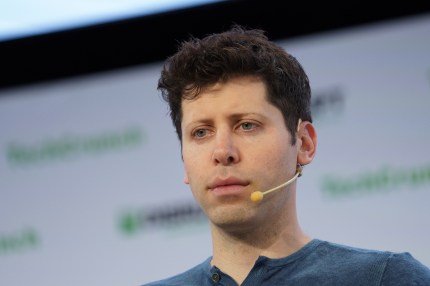Hebbia, a startup that uses generative AI to search large documents and respond to large questions, has raised a $130 million Series B at a roughly $700 million valuation led by Andreessen Horowitz, with participation from Index Ventures, Google Ventures and Peter Thiel.
And its funding demonstrates that 50x annual recurring revenue (ARR) is becoming the norm for AI startups, especially ones that have booked millions of profitable revenue early in their journey.
The formal funding announcement confirmed most of the details previously reported by TechCrunch, although Hebbia continued to raise more funds, another $30 million, after our report. But Hebbia has not yet filed an updated disclosure on this funding round to the SEC, and the latest one at this time still says it was raising around $100 million of new equity.
Hebbia, which was founded by George Sivulka while he was working on his PhD in electrical engineering at Stanford, had ARR of $13 million and the company was profitable when it was pitching investors on the deal, according to a person with knowledge of the matter.
In an interview with TechCrunch, Sivulka, who is the startup’s sole founder and CEO, declined to comment on Hebbia’s revenue or profitability. But he said that the startup’s revenue grew by 15x over the last 18 months.
The $700 million valuation implies that investors valued Hebbia at about 54 times ARR. Such heady valuations were common at the height of the pandemic-infused boom and are now routinely assigned to buzzy AI startups. Hebbia’s closest analogues, Glean and Harvey, had valuations of slightly over 60x ARR, according to the Information’s reporting.
Founded in 2020, Hebbia initially worked on an AI-powered search and summarization tool. The company later revamped itself as an AI analyst. Matrix, Hebbia’s main product, can ingest multiple files of unlimited length, and respond to users’ inquiries in a tabular format, similar to a spreadsheet. For example, the Matrix can sift through SEC filings and other documents to organize and compare information about a specific company and its competitors, Sivulka said.
Hebbia currently sells its software primarily to asset managers, investment banks and other financial institutions. But the startup is expanding its offering to other areas, including law firms and pharmaceutical companies, Sivulka said.
The company’s product is already being used by 30% of all asset managers, who use Hebbia for due diligence, asset pricing and other research, according to Sivulka. The fresh funding is being used to grow its team, continue to sell to the financial services industry and expand to other verticals.
Hebbia’s list of customers includes investment bank Centerview Partners, Charlesbank and legal firm Fenwick.
Sivulka has been described as a wunderkind. He worked at NASA as a teenager and graduated from Stanford with a bachelor’s degree in math in 2.5 years.
He also stands out from other enterprise-focused founders for not having direct business experience nor a business-focused co-founder.






























Comment